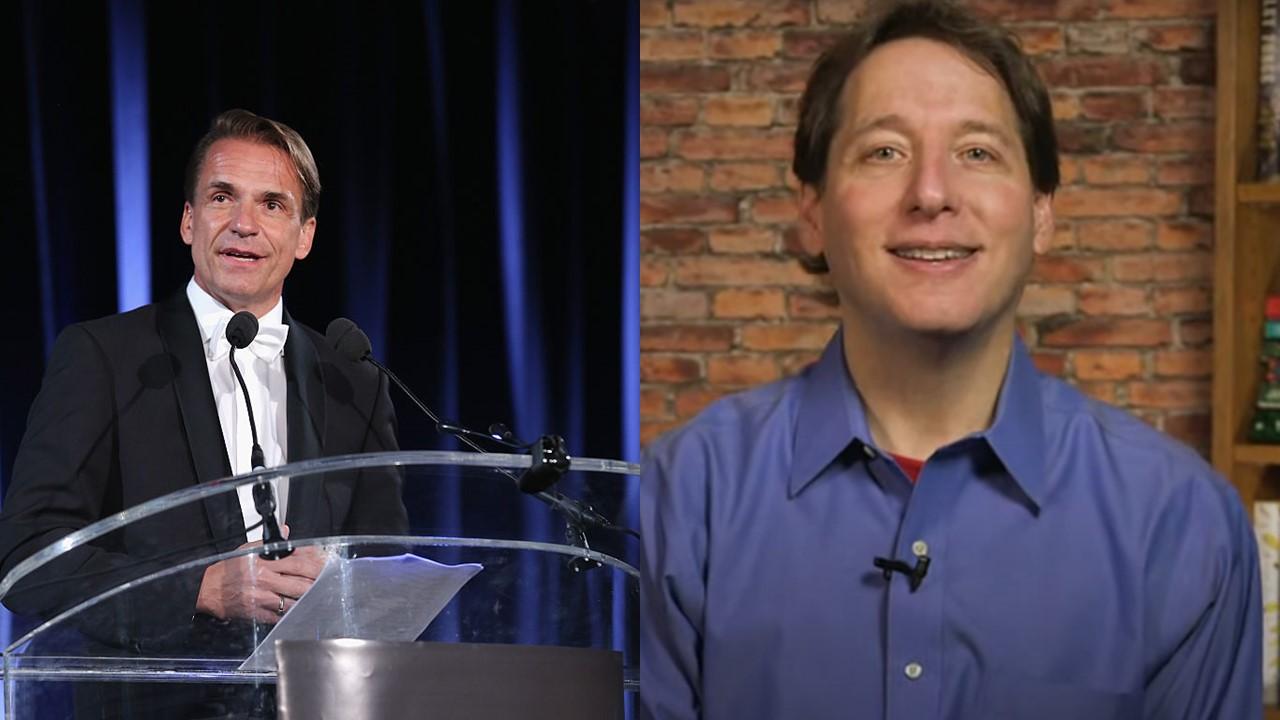Random House and Simon & Schuster Merger in Question As Trial Begins
The Department of Justice wants to block a publishing merger that would further consolidate the industry. Will Random House and Simon & Schuster merge?
Aug. 1 2022, Published 11:22 a.m. ET
The U.S. Department of Justice has a bone to pick with the publishing industry at large, but it’s currently targeting two behemoths in particular. In a bid to block the merger between Penguin Random House and Simon & Schuster, the DOJ trial has begun in federal court as of Monday, Aug. 1.
Monopolization in the publishing industry is no joke, and the DOJ’s efforts to block the transaction could keep the publishing and retail industry open and accessible for authors and readers alike. Random House and Simon & Schuster, on the other hand, beg to differ.
The DOJ lawsuit is attempting to block the publishing house merger in progress.

Penguin Random House CEO Markus Dohle (L) and Simon & Schuster CEO Jonathan Karp (R)
The long-awaited DOJ lawsuit against Random House and Simon & Schuster is scheduled to begin in federal court on Monday. A merger between Random House (of parent company Bertelsmann Publishing Group) and Simon & Schuster (of Paramount Global) would further consolidate an already fused industry.
Under the Biden administration, FTC Chair Lina Khan has brought a sense of urgency to the monopolization landscape in the U.S. While the DOJ has handed the publishing houses this lawsuit, the intent is deeply rooted in the current White House climate.
What's at stake in the lawsuit?
The publishing houses propose that German-headquartered Bertelsmann Publishing buy Simon & Schuster from Paramount Global. Legendary author Stephen King is set to stand as a witness in the trial, though it’s unclear when he will testify.
The DOJ says reduced competition would increase consumer prices for books and make it harder for authors to land a book deal. The deal would “make the biggest player even bigger, and likely increase coordination in an industry with a history of coordination among the major publishers,” says the DOJ.
The publishing industry is severely monopolized.
The vast majority of the publishing industry is made up of what people call “the big five.” This includes Penguin Random House, Simon & Schuster, Hachette Book Group, Harper Collins, and Macmillan.
The big five used to be the big six before Penguin and Random House merged. Now, the big five accounts for 92.5 percent of hardcover books and 83.7 percent of paperback books. If the merger between Random House and Simon & Schuster proceeds, the big five becomes the big four, further consolidating an already compressed industry. Together, the two publishing houses would control about half of the total market.
The publishing houses and their parent companies are ready to put up a fight. According to a joint statement, “The merger at issue in this case will encourage even more competition and growth in the U.S. publishing industry.” They say this is because the combined firm would have more capital to offer to authors and reach readers, and that high-value book deals above $250,000 already make up a minority (less than 2 percent). That’s a perspective that will be put to the test in the DOJ lawsuit trial.

